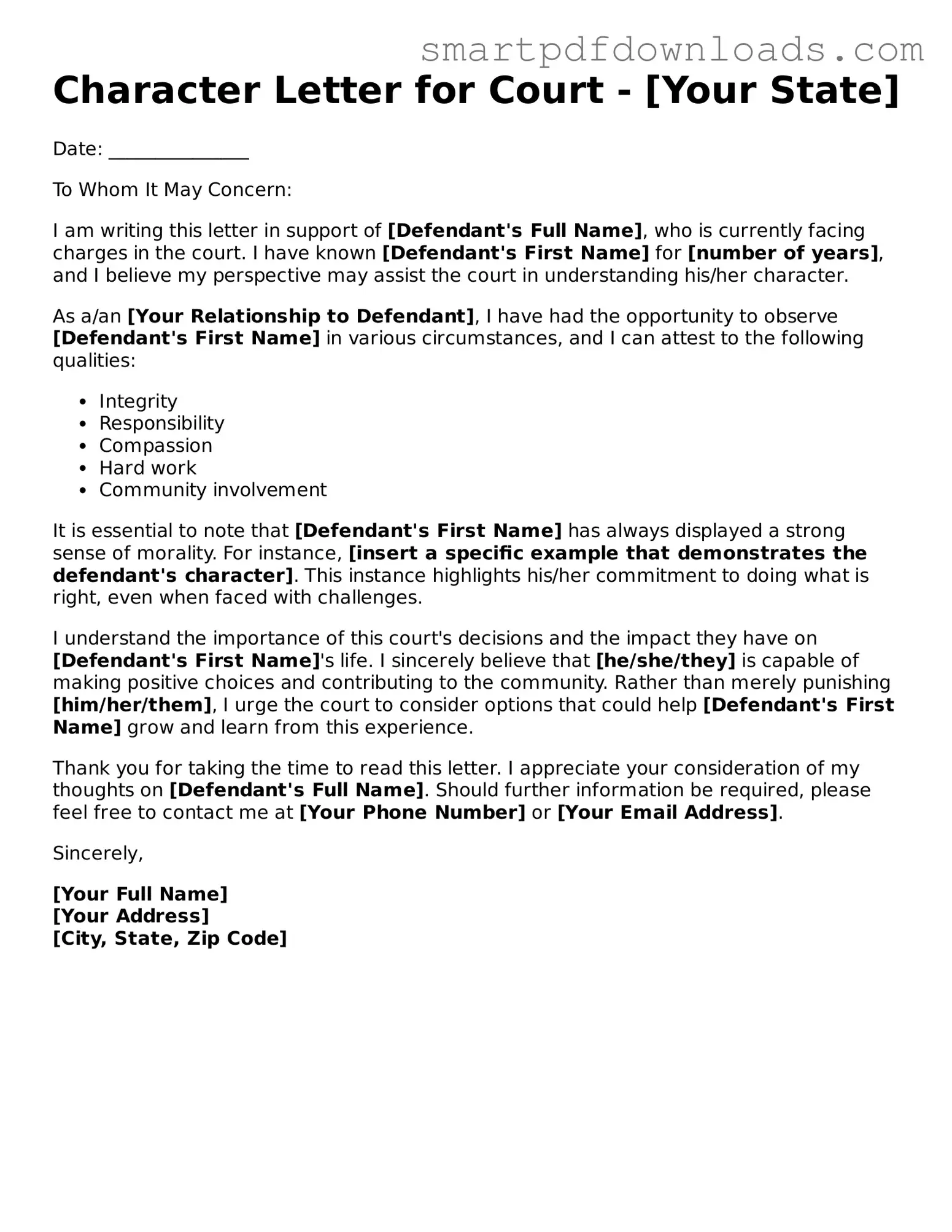Free Character Letter for Court Form
The Character Letter for Court is a written statement that provides insight into a person's character, often submitted during legal proceedings. This letter can be used to support an individual's case by highlighting their positive traits and contributions to the community. It serves as a personal endorsement, helping the court understand the individual's character beyond the legal issues at hand.
Edit Character Letter for Court Online

Free Character Letter for Court Form
Edit Character Letter for Court Online

Edit Character Letter for Court Online
or
⇓ PDF File
Finish the form and move on
Edit Character Letter for Court online fast, without printing.